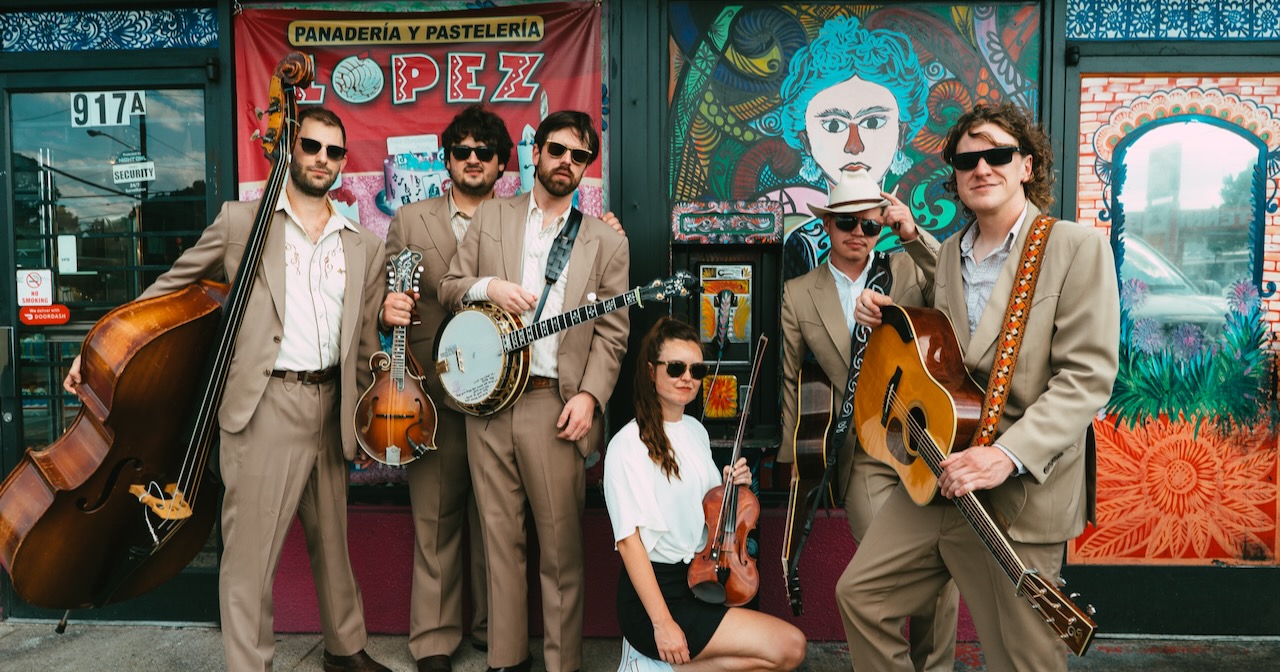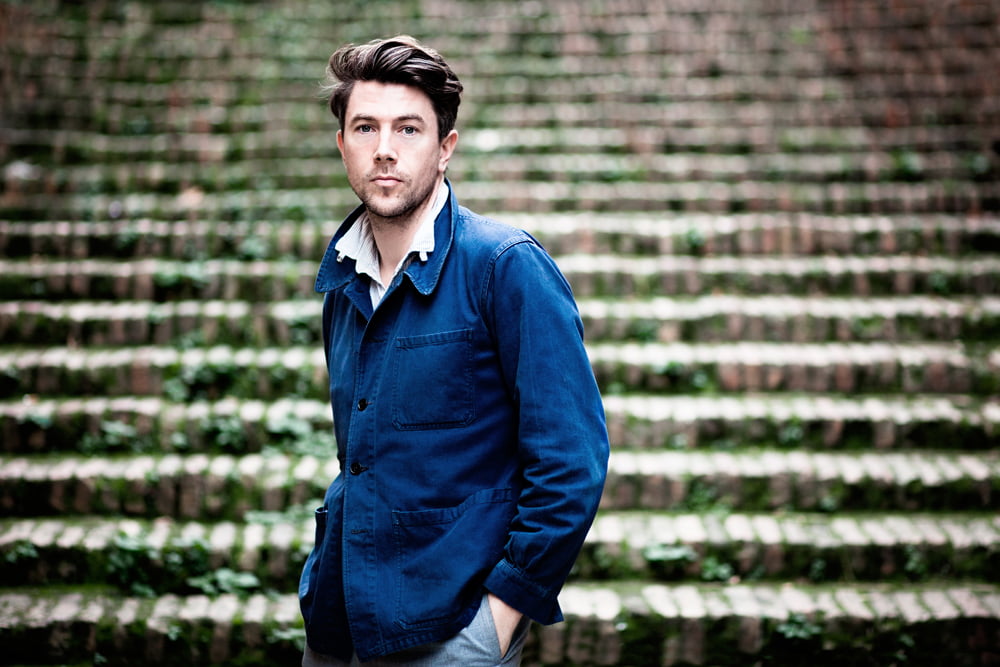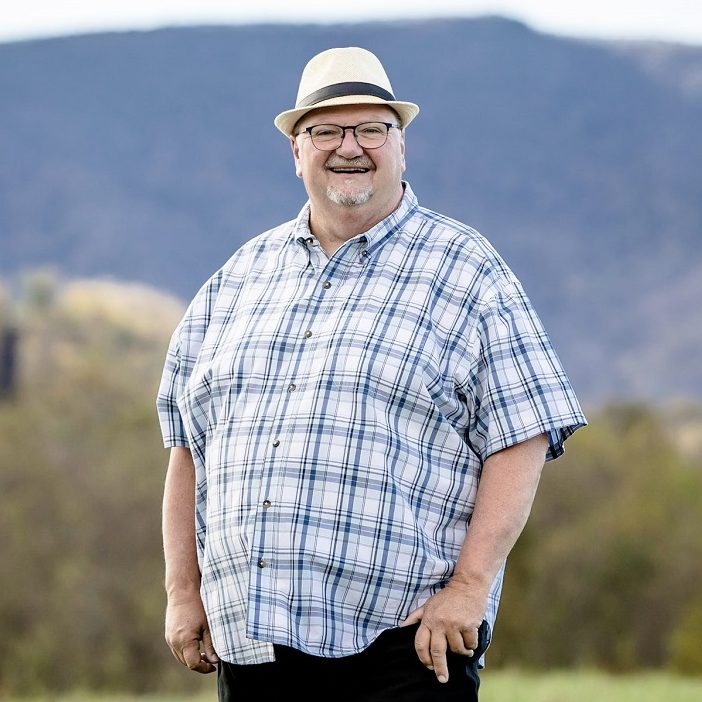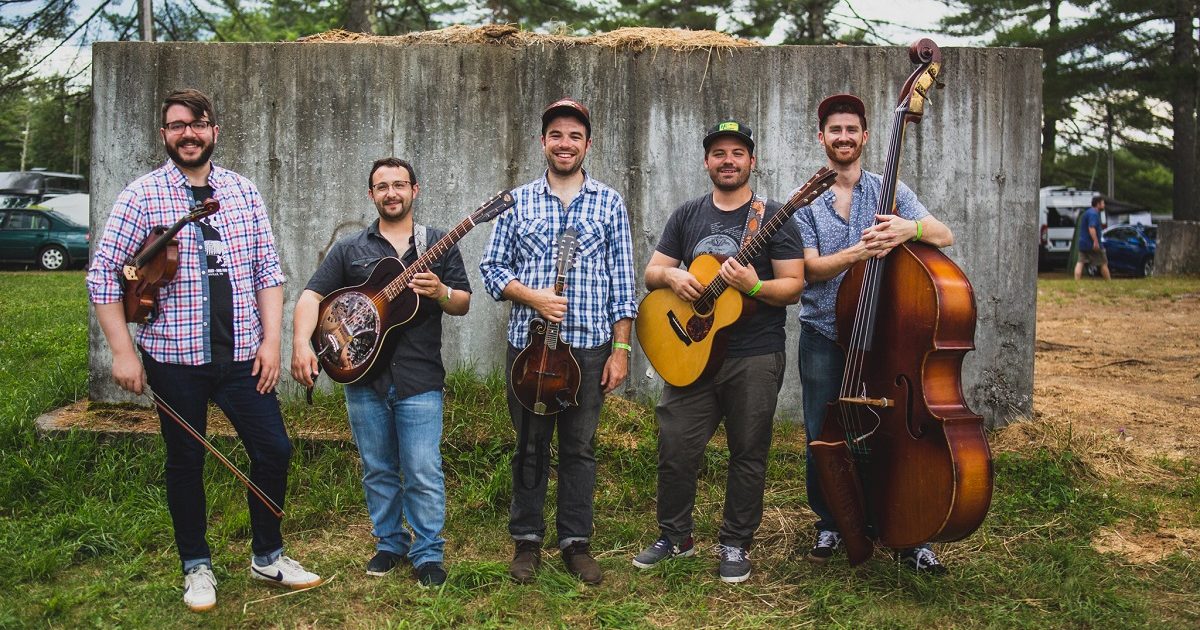The avant-garde, southern rock icon Col. Bruce Hampton had a belief that defined his career: don’t take yourself seriously – take what you do seriously. That saying holds strong for East Nash Grass, a group who have entertained the crowds at Dee’s Country Cocktail Lounge (in Madison, Tennessee) with incredible bluegrass and charming stage antics every Monday night for nearly six years.
Bluegrass music has a longstanding tradition of bands performing recurring shows. In the 1970s, J.D. Crowe & the New South rose to popularity while performing five nights a week at the Red Slipper Lounge in Lexington, Kentucky. Meanwhile, the Seldom Scene was gaining traction in the Washington, D.C., area with weekly performances at the Red Fox Inn and later the historic Birchmere. Performing that much allowed those bands to not only grow musically, but to grow their own, almost cult-like fanbase.
While the members East Nash Grass – Harry Clark (mandolin), Maddie Denton (fiddle), James Kee (mandolin), Gaven Largent (Dobro), Jeff Picker (bass), and Cory Walker (banjo) – are getting ready to celebrate six years of performing Monday nights at Dee’s, their sophomore record Last Chance to Win is charting No. 4 on Billboard’s Bluegrass Chart, they’re booked at festivals all over the country, and they’re nominated for IBMA’s New Artist of the Year award.
BGS recently caught up with James Kee and Cory Walker to discuss the new album, the origins of the band, and the longstanding residency at Dee’s.
East Nash Grass started with a rotating cast in 2017, playing every Monday night at Dee’s Country Cocktail Lounge. Can you tell me about the origins of the group, and when the lineup came together as something more than a weeknight pickup band?
James Kee: We had a lot of lineup changes in the early days – we solidified that lineup by 2018 or so, but it wasn’t as strong as the current lineup. We had Maddie [Denton] then, but Cory started playing with us full time in 2019, as did Harry [Clark]. And when that happened, East Nash Grass became serious. We just gelled together. It was super comfortable musically, and also professionally.
Cory Walker: I got a gig in 2015 or ’16, at Arrington Vineyards, and came up with the band name then. There was such a resurgence of bluegrass in the East Nashville area. Putting together the band, if I couldn’t get this one person on mandolin, there were five others I could call. Then, Harry and I met this guy that worked at Dee’s and wanted to put together a weekly bluegrass show. So that’s how we were associated in the very beginning. But I wasn’t playing every Monday night, and around that same time Harry moved to Lexington for a couple of years to play with the Wooks.
You’ve definitely become known for your unique stage presence and antics, between (and often during) songs, and you take that same energy from Madison to stages all over the country. How has playing a weekly gig for six years shaped the way you perform?
CW: I’ve played with so many people who use the same old formula. I don’t want to be a mouthpiece for the thing that has always worked. That’s one of the things I love about playing in this band, turning peoples heads upside down. It’s fresh air.
JK: We’ve each been a sideman in all these different bands, and so many can suck the air out of the room between songs. They’re great, but we really wanted to loosen up from that. I have the same irreverence for the “same old” that Cory does.
How has your stage presence been received in more traditional performance spaces?
JK: It’s not for everyone, but never any negative experiences. Often, they’re not sure what to think. People might think we do something different than other bands, but we do a lot of the same, just in our own way. We got on the Ryman stage and thanked Tim Allen – twice.
CW: But, he was there… this is really new territory, as far as the stage show. I love to go back to the Dee’s stream from the past week and watch the clown moments, where somebody does something off the wall and then everyone else responds to it in some way. In any other band scenario, that person would be fired, immediately.
Your performances are always unique, but so is this new record. How did you choose material, and go about recording Last Chance to Win?
JK: We knew there were some songs that people wanted us to record, that we’d already been doing. That was “Slippin’ Away,” “How Could I Love Her So Much,” three or four songs. We went in and cut those and got used to the environment, this particular studio and this first album with Jeff [Picker] on bass. I brought a lot of material to the first record, and I wanted to see what everybody else would bring to this one. It ended up having this old-time vibe that just naturally occurred, and so we ended up finishing out the record with more songs that fit that.
Everyone in East Nash Grass seems to get their own voice, despite each of you having worked for countless solo artists. What’s it like to all come together and cultivate your own fanbase?
CW: Having a band where everyone has a say really makes people care more about the music and want to stick around. Even though we’ve all worked for bigger acts, we’re getting in together at the bottom floor. The people at our release show were primarily our age and younger. Those people will stick around, too.
Photo Credit: Kaitlyn Raitz



